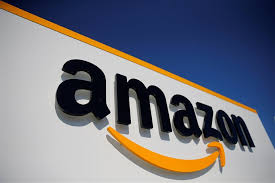In a significant legal development, US regulators have filed a lawsuit against Amazon, asserting that the tech giant is unlawfully maintaining a monopoly position. The Federal Trade Commission (FTC) alleges that Amazon employs a series of interconnected anticompetitive and unjust tactics to drive up prices and suppress competition within the market.
Amazon has responded to the lawsuit by stating that it is “wrong on the facts and law,” and the company looks forward to presenting its case in court.
This lawsuit marks the latest legal action taken against major technology companies by US regulators. The FTC’s Chair, Lina Khan, has been scrutinizing Amazon for several years. In 2017, when Khan was 29 years old, she authored a significant academic article contending that Amazon had escaped adequate antitrust scrutiny. At that time, she remarked, “With its missionary zeal for consumers, Amazon has marched toward monopoly.”
Khan’s appointment as FTC Chair in 2021 has raised expectations of legal action against Amazon, seen as a pivotal test of her leadership. It comes amid a broader discussion in the US about the dominance of a few powerful tech firms and the need for measures to promote more competition in sectors such as online search, retail, and social media.
However, the FTC, under Khan’s leadership, has faced challenges in making its strong stance against Big Tech translate into successful legal outcomes. In February, the FTC’s attempt to prevent Meta from acquiring VR company Within was unsuccessful. In July, its efforts to block Microsoft’s purchase of the maker of Call of Duty also failed.
The current lawsuit against Amazon, filed in partnership with 17 state attorneys, alleges that the company is a “monopolist” that prevents competitors and sellers from reducing prices. The regulator additionally claims that Amazon’s actions result in “reduced quality for shoppers, inflated costs for sellers, stifled innovation, and hindered rivals from fair competition against Amazon.”
Amazon counters these allegations by asserting that the FTC’s lawsuit, if successful, would lead to fewer product choices, higher prices, and slower deliveries for consumers.
A central element of the case hinges on whether consumers have suffered financial losses or received worse deals due to Amazon’s alleged monopoly. Proving this aspect can be challenging under US antitrust laws, as many of the services offered by Big Tech companies are free, such as Google’s search engine or Meta’s Instagram.















